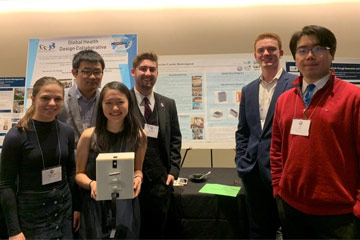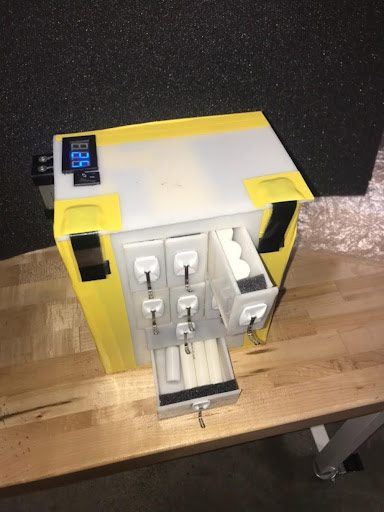
August is National Immunization Awareness Month, a time to highlight the importance of vaccines for people of all ages—and educate the public on how vaccines prevent serious, sometimes deadly, diseases.
According to the World Health Organization, vaccines prevent between 4 and 5 million deaths each year, and 1.5 million deaths could be avoided annually if global vaccination coverage were to improve.
A group of students at Case Western Reserve University is up to the challenge. The students have been working to design an efficient, affordable vaccine carrier for rural Ugandan healthcare workers through the Global Health Design Collaboration (GHDC), a student group offered through the Case School of Engineering. Established in 2016, the group is a multi-level interdisciplinary organization that aims to integrate social science and engineering disciplines in the development of relevant, sustainable solutions to health concerns in the African country of Uganda.
GHDC has five student teams, and all work collaboratively with a partner team of students at Makerere University in Uganda. In addition to those on the vaccine carrier team, CWRU students are working to create a backpack for healthcare workers; exploring low cost ways to help with medical waste disposal; looking into safe, discrete ways to dispose of an injectable hormonal birth control; and even creating a diagnostic reusable pediatric pulse oximeter, now used in low-income countries to detect hypoxemia.

Normally, GHDC members travel Uganda to put their research to practice. And when the COVID-19 pandemic grounded their ability to travel last year, Lynn Rollins, one of four GHDC advisors, worried that students would drop out of the club. Instead, its membership grew from about 40 members in 2019 to 80 this past academic year.
“I think this speaks to the fact that CWRU students hunger for a sense of connection to the world around them and clubs that provide these types of interdisciplinary, globally focused projects really do fill a need that is deep,” Rollins said. “These cross-cultural experiences teach us all how to communicate more effectively, challenge our assumptions, and see the world a little differently.”
Students from all majors are welcome to join GHDC. The group is predominantly made up of undergraduates, but graduate students are welcome to help advise the teams. If interested in joining, reach out to club president Aman Shankardass (axs1595@case.edu), or Lynn Rollins (lxa20@case.edu). For more information about GHDC’s projects, visit the Center for Engineering Action website.
